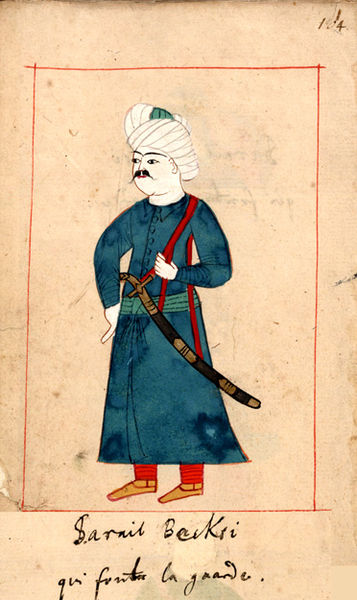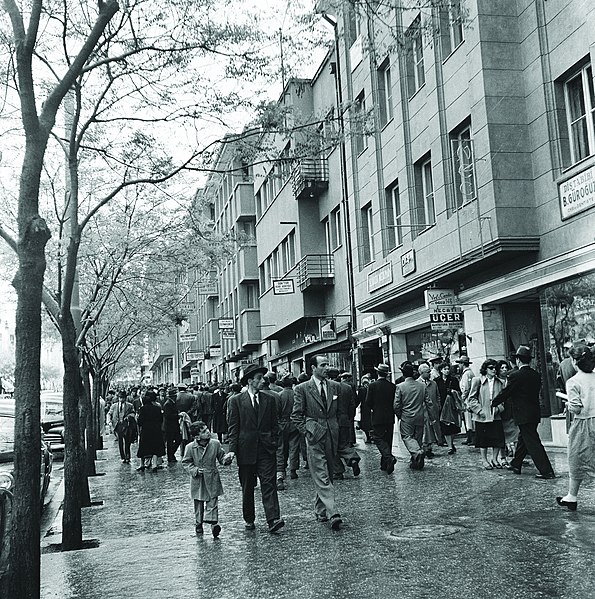The Ottoman Turks were a Turkic ethnic group. Originally from Central Asia, they migrated to Anatolia in the 13th century and founded the Ottoman Empire, in which they remained socio-politically dominant for the entirety of the six centuries that it existed. Their descendants are the present-day Turkish people, who comprise the majority of the population in the Republic of Turkey, which was established shortly after the end of World War I.
Painting of an Ottoman Turkish sipahi, 1657
Ottoman miniature from 1579/1580 depicting Osman I, who founded the House of Osman and the Ottoman Empire around 1299. Located at Topkapı Sarayı Müzesi in the city of Istanbul.
Turkish people or Turks are the largest Turkic people who speak various dialects of the Turkish language and form a majority in Turkey and Northern Cyprus. In addition, centuries-old ethnic Turkish communities still live across other former territories of the Ottoman Empire. Article 66 of the Turkish Constitution defines a Turk as anyone who is a citizen of Turkey. While the legal use of the term Turkish as it pertains to a citizen of Turkey is different from the term's ethnic definition, the majority of the Turkish population are of Turkish ethnicity. The vast majority of Turks are Muslims and follow the Sunni and Alevi faith.
The Sogdian trader An Jia (right) brokering an alliance with Turks (left). 579 CE, Tomb of An Jia, Xi’an, China.
West Thrace Republic, Turks in Kardzali
The loss of almost all Ottoman territories during the late 19th and early 20th centuries, and the establishment of the Republic of Turkey, in 1923, produced waves of Turkish refugees, who were known as "Muhacirs", who fled from hostile regions of the Balkans, the Black Sea, the Aegean islands, the island of Cyprus, the Sanjak of Alexandretta, the Middle East, and the Soviet Union to migrate to Anatolia and Eastern Thrace.
People on the Anafartalar Boulevard, Ankara in the 1950s






